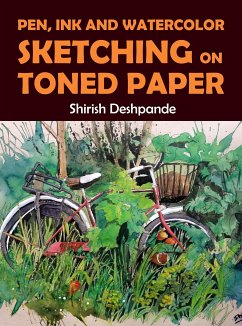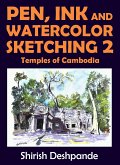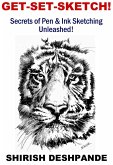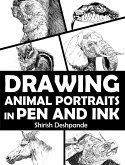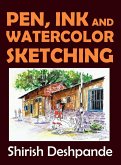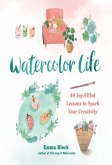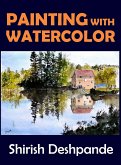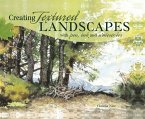Are you a beginner sketcher? Or are you a seasoned sketcher looking to infuse some magic in your illustrations?
Do you think that the average art instruction book omits too many steps in explaining the illustration techniques?
Then this book is for you.
Why combine pen, inks and watercolor for illustrations? And why use toned paper?
Pen and ink are the ideal tools to create mind-blowing textures and contrasts in illustrations.
Watercolor painting is appealing for the charming effects it creates but notorious for its unpredictability.
Toned paper brings in a surreal charm to the pen-ink-watercolor sketches. A toned paper can be used to create a vintage feel or to create unexpected, vivid color effects.
What will you learn in this book? - Understanding shapes and values. - Color theory - complementary colors, warm and cool colors. - Composition and coloring techniques.
Of course, the real learning happens by doing, not just reading. So, we will implement all the shading techniques and the brush techniques into ten step-by-step demonstrations.
Each demonstration will teach you how to do the initial rough pencil sketch, line work using pens, and coloring.
The ten step-by-step demonstrations will cover the following topics:
A Ladybug We will begin our exercises by painting a beautiful Ladybug on beige paper. This is a simple exercise where we will learn to create a luster effect using white paint.
An Old Wall and Door You will learn to create exquisite textures using pens, ink, and watercolor in this exercise.
Reflection of a Tree You will venture to the dark side by doing our first painting on black paper. You will learn to paint loose and take advantage of the paper color.
The Waterfall
You will paint a beautiful waterfall in the jungle. You will also learn to use overlapping elements to create depth in a painting.
The Garden Steps You will learn to simplify a seemingly complex subject and add some jazz to the painting using white highlights.
The Bicycle You will paint a beautifully charming, yet neglected bicycle surrounded by thick foliage. You will learn to handle complex overlapping elements in this illustration.
A Path in the Forest You will again visit the black paper in this illustration. In this illustration, you will learn an interesting technique of painting fog and creating many levels of depth in a painting on black paper.
The White Church A painting with various elements and their complex interactions with each other. This is one of the most demanding paintings in this book.
The Yellow Boat A simple yet beautiful illustration of a boat and the lapping waves around it. Learn to use a limited palette to paint beautiful illustrations.
An Autumn House You will learn to declutter a seemingly overwhelming subject in this complex exercise. You will also learn to understand how to handle highly complex overlapping elements.
Dieser Download kann aus rechtlichen Gründen nur mit Rechnungsadresse in A, B, CY, CZ, D, DK, EW, E, FIN, F, GR, H, IRL, I, LT, L, LR, M, NL, PL, P, R, S, SLO, SK ausgeliefert werden.

